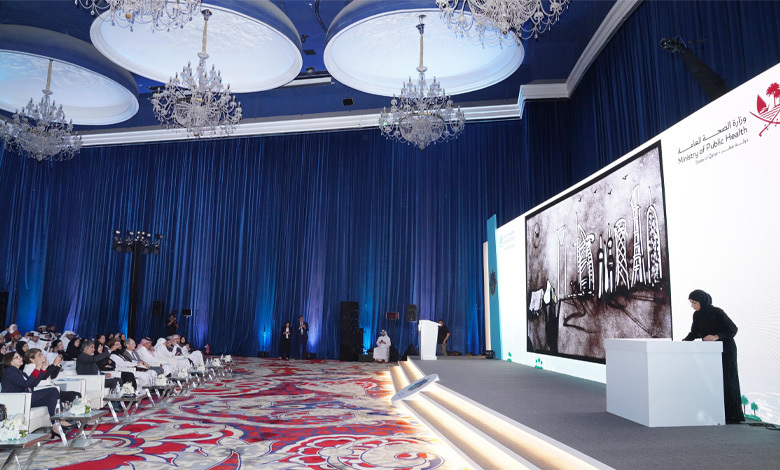The Eastern Mediterranean Region Healthy Cities Conference 2023 opened in Doha yesterday, with a focus on Qatar’s dedication to the World Health Organization’s Healthy Cities approach.
By the Sustainable Development Goals, the 13th General Programme of Work of the World Health Organisation, and the regional Vision 2023 goal of “Health for All by All,” the objective is to investigate ways to expand the Healthy Cities approach throughout the Eastern Mediterranean Region.
The hybrid conference, with the theme “Healthy Cities: A Multisectoral Approach to Health and Well-Being,” at the Mondrian Hotel will also examine Qatar’s experience in this area as well as the Healthy Cities movement at the local level in the region.
In her introductory remarks, the Minister of Public Health, H E Dr. Hanan Mohammed Al Kuwari, emphasized the importance of the Healthy Cities movement as an ongoing path towards health and well-being and how Qatar has demonstrated its commitment to this movement by adopting the healthy cities model.
“Qatar endeavors to enhance the health and welfare of its populace while attaining sustainability, under the sagacity of Amir H. H. Sheikh Tamim bin Hamad Al Thani, and to realize the 2030 National Vision,” the spokesperson stated. The nation’s efforts in this regard are aided by the Healthy Cities program, and we are pleased that Qatar is the first nation in which all municipalities have been designated as Healthy Cities by the World Health Organisation. Additionally, Qatar Foundation’s Education City and Qatar University have been designated as Healthy Universities. The Minister emphasized that the goal of the Healthy Cities approach is to develop and maintain social and physical environments, increase access to community resources, and promote interpersonal support.
“Qatar has embraced this approach and turned it into best practices, policies, and strategic initiatives by closely collaborating across all national sectors and adhering to the strategic priority of ‘Health in All Policies.'” We are happy that this conference allows us to share our knowledge and experiences with WHO Healthy City Networks in different regions as well as with other nations in the Eastern Mediterranean Region. WHO Regional Director for the Eastern Mediterranean, Dr. Ahmed Al Mandhari, along with high-ranking officials and representatives from fifteen countries attended the opening ceremony of the Conference, which was organized by the WHO and Ministry of Public Health. The conference also featured a video message from WHO Director General, Dr. Tedros Adhanom Ghebreyesus.
In the Eastern Mediterranean Region, the number of healthy cities grew from 64 in 11 countries in 2019 to 111 in 15 countries by 2023.
“In the WHO Eastern Mediterranean Region, the programme has advanced remarkably, with the Regional Healthy Cities Network experiencing significant growth. We are certain that there are more opportunities than ever to make the transition to healthy cities, but we are also aware of the obstacles that many of our nations and territories face. Planning needs to take into account both the opportunities and the challenges to realise the regional goal of “Health for All by All,” according to Al Mandhari.
Around 1300 people are expected to attend the two days of talks featuring more than 40 local and international speakers on how to advance urban health strategies that will make communities and cities throughout the Region and beyond healthier.
Qatar is actively investing in a paradigm of urban health by embracing the ‘Healthy Cities’ model. This visionary approach prioritizes the well-being and quality of life for its residents, underscoring Qatar’s commitment to sustainable and holistic urban development that promotes physical, mental, and social health within its cities.
Read More: Visa Suspension: Oman’s Decision on Bangladeshi Travelers


















